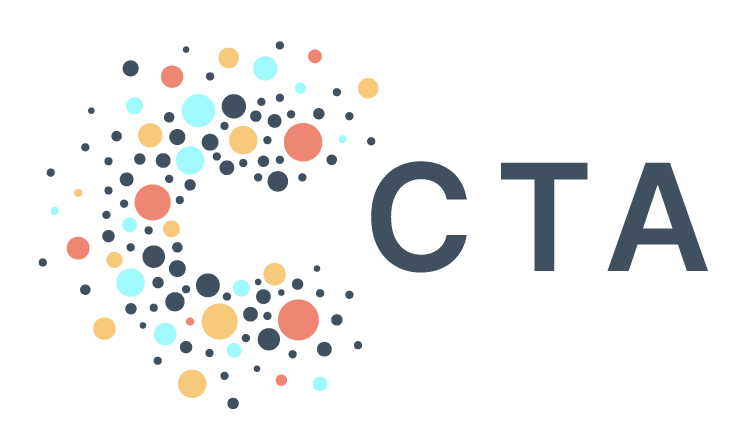Services
The following Service Level Agreement is made part of the Service Agreement between Organization and Community Tech Alliance (“CTA”). Any capitalized terms not defined in the Service Level Agreement have the meaning given to them in the Services Agreement. If there is any conflict between the Service Level Agreement and the Service Agreement, the Service Agreement shall control.
CTA does not control the host physical infrastructure. CTA relies on the fault-tolerant nature of GCP across multiple availability zones and can redeploy the platform to another region in case of catastrophic failure.
As a result, CTA cannot provide Service Level Agreements that exceed those offered by our service providers and subprocessors:
Google BigQuery: https://cloud.google.com/bigquery/sla
Google Cloud Storage: https://cloud.google.com/storage/sla
Google Compute Engine: https://cloud.google.com/compute/sla
Generally. As part of Organization's agreement with CTA, CTA will provide basic support to Organization.
Basic Support. Organization will receive support for billing inquiries and access to documentation, white papers, and online best practices guides.
Support Request Submission.
First Line Support. Organization will provide first-level support to Organization’s own Users. CTA will provide second-level support to Organization’s Designated Contacts only.
Organization Efforts to Fix Errors. Prior to making a request to CTA, Organization will use reasonable efforts to fix any error, bug, malfunction, or network connectivity defect without escalation to CTA.
Characterization of Requests. Organization designates P1-P4 priority upon submission of Requests. CTA will review Organization's priority designation and may change designations that CTA believes are incorrect. Any such determination made by CTA is final and binding on Organization.
Procedures for Acknowledgement and Resolution of Requests. When making a Request, Organization will provide all requested diagnostic information and assist CTA as may be required to resolve a Request.
Request Acknowledgement. CTA may respond to a Request by acknowledging receipt of the Request. Organization acknowledges and understands that CTA may be unable to provide answers to or resolve all Requests.
Feature Requests. If CTA deems a Request to be a Feature Request, CTA will log such Request for consideration to add to a future update or release of the Services and will consider the matter closed. CTA is under no obligation to respond to or resolve any Feature Request or to include any such Feature Request in any future update or release.
Building Applications. For clarity, CTA has no obligation to provide services except as provided in the Services Agreement and Exhibits thereto. For example, unless provided in the Services Agreement and Exhibits thereto, CTA has no obligation to: (i) write, build, or improve any software applications or write code to facilitate any applications; (ii) configure the Offering for Organization; or (iii) design, build, or review Organization infrastructure.
Accessing Support.
Setting Designated Contacts. Organization-designated support administrators may add Designated Contacts to its support Requests.
Support Hours and Target Initial Response Times. CTA will process Requests during the Hours of Operation, unless otherwise indicated in this Exhibit. Any Requests received outside of the Hours of Operation will be logged and processed during the next Business Day. Target initial response times are based on the subscribed support level.
Maintenance. To ensure optimal performance of the Services, CTA performs periodic Maintenance. In most cases, Maintenance will have limited or no negative impact on the availability and functionality of the Services. If CTA expects planned Maintenance to negatively affect the availability or functionality of the Services, CTA will use commercially reasonable efforts to provide at least seven days' advance notice of the Maintenance. In addition, CTA may perform emergency unscheduled Maintenance at any time. If CTA expects such emergency unscheduled Maintenance to negatively affect the availability or functionality of the Services, CTA will use commercially reasonable efforts to provide advance notice of such Maintenance. Maintenance notices noted above will be provided via an email to the Notification Email Address.
Additional Definitions.
"Business Day" means any day during the Hours of Operation.
"Designated Contacts" means employees designated by Organization who are allowed to contact CTA for technical support.
"Feature Request" means a Request by a Designated Contact to incorporate a new feature or enhance an existing feature of the Services that is currently not available as part of the existing Offering.
"Hours of Operation" means responses will be provided 8:00 am to 5:00 p.m. on Monday to Friday Eastern Time Zone, except for holidays.
"Maintenance" means maintenance work that is performed on software delivering the Offering.
"Notification Email Address" is the primary contact email address provided to CTA.
"P0" means impact to operating environments that have been provisioned to support Mission Critical Services.
"P1" means Critical Impact – Service Unusable in Production.
"P2" means High Impact – Service Use Severely Impaired.
"P3" means Medium Impact – Service Use Partially Impaired.
"P4" means Low Impact – Service Fully Usable.
"Priority" means P0, P1, P2, P3 or P4 depending on the level of impact a Request is having on Organization's operations and is used to establish initial target response times.
"Request" means a request from a Designated Contact to CTA support to resolve a question or problem report regarding the Services.
“Mission Critical Services” means a service that is core to the needs of the Organization and a timely response is necessary to continue operations. There does not exist a workaround or alternate solution to a Mission Critical Service.
Target Initial Response Times for Standard Support During Hours of Operation
P1: N/A
P2: 6 hours
P3: 12 hours
P4: 24 hours
All P1 incidents will be acknowledged and responded to ASAP, even outside of the Hours of Operation.
